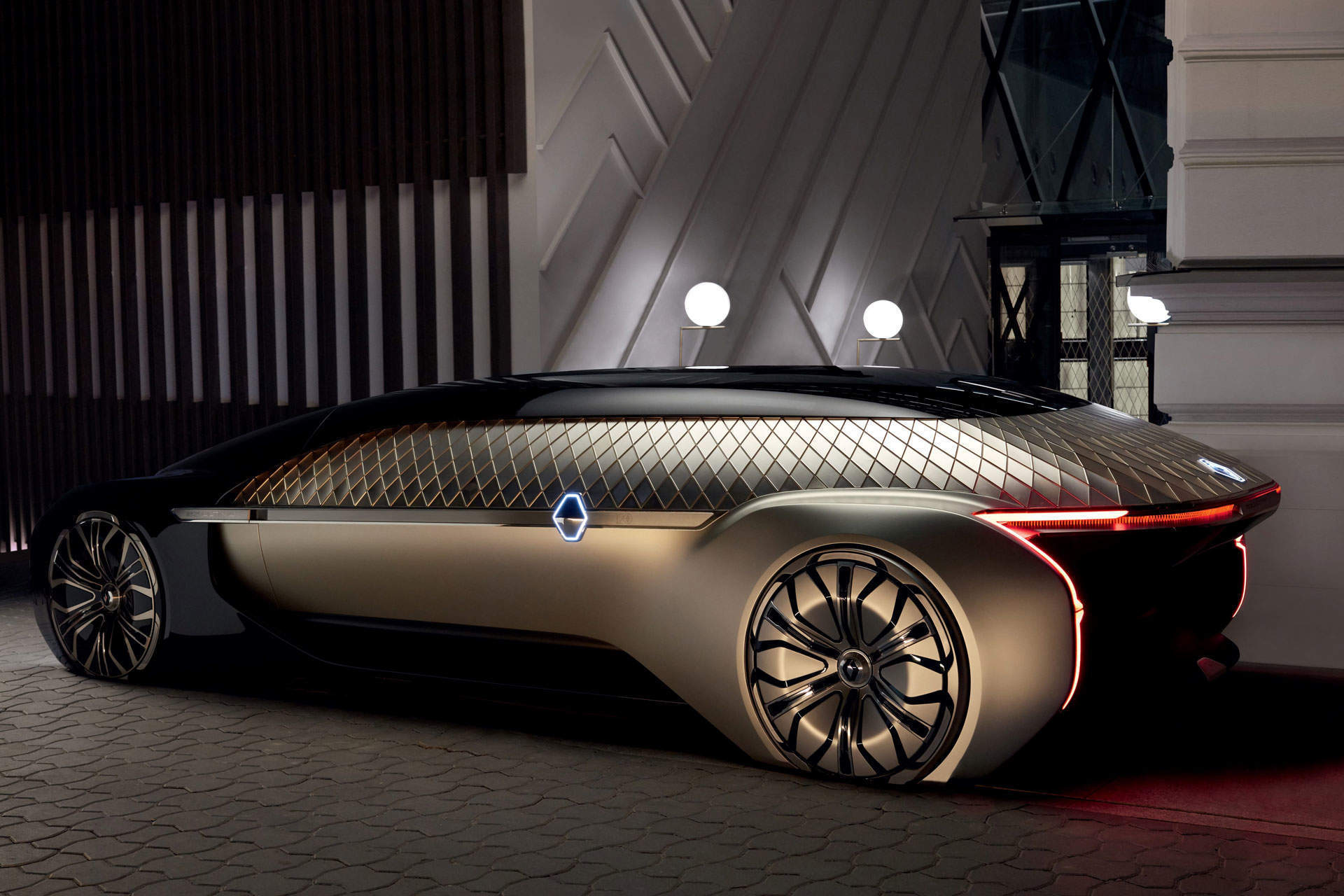
The automotive industry’s growing commitment to the environment and investing in new technology is taking centre stage at the Paris Motor Show 2018, where a large host of manufacturers are showcasing their latest innovations in electric vehicles and autonomous cars.
The likes of Renault, Mercedes-Benz, Jaguar, Tesla and many other automotive giants all travelled to the French capital for the biennial event, which has now entered its second week and is expected to welcome thousands of car enthusiasts from around the world.

Access deeper industry intelligence
Experience unmatched clarity with a single platform that combines unique data, AI, and human expertise.
Spread across five pavilions at the Paris Expo Porte de Versailles, in the Parisian suburbs, the Paris Motor Show will last until 14 October and is among the most important events for the industry.
Exhibitors at the show have focused their energy on presenting their latest cutting-edge technologies, mainly in the form of electric vehicles (EVs) and driverless luxury cars.
Mercedes presents an electric-powered future at the Paris Motor Show 2018
An ever-growing need to find sustainable alternatives to traditional fuels has found fertile soil at the show, where several companies pushed towards electric with their new ranges of electric-powered vehicles.
Possibly the most eye-catching idea among these is showcased by German manufacturer Mercedes-Benz, whose 100% electric SUV – called EQC – stole the spotlight from EV pioneer Tesla.

US Tariffs are shifting - will you react or anticipate?
Don’t let policy changes catch you off guard. Stay proactive with real-time data and expert analysis.
By GlobalDataThe model, which is set to be commercialised in the second half of 2019, is part of Mercedes-Benz’s all-electric EQ range. It will be supported by the Mercedes Me app, which allows users to plan their routes to the minutest detail and find out where the nearest charging locations – called Ionity – can be found. The car also comes with the Wallbox, which can charge the car at home to 80% in about 40 minutes.
Another product of the EQ range is the racing Silver Arrow. A homage to its famous 1937 version, which bears the same name, the concept supercar combines 550kW output and an 80kWh battery for a range of over 400km. It has a ‘Virtual Race Coach’ function on one of the two front screens that gives advice to the driver, while, thanks to artificial intelligence, the second screen projects a virtual map of the track and the “ghost” of the pilot in front of and behind the car.
Kymco dominates with electric scooters
However, while Mercedes-Benz has to compete with Audi, Tesla and BMW for the best EVs, Taiwan-based motor scooter, motorcycle and ATV manufacturer Kymco neutralised competition in its sector by launching Ionex Commercial, a fleet of all-electric scooters destined for commercial purposes.
Part of Kymco’s mission to fully switch to EVs, the Ionex scooters were initially released on the market for consumers, but the fleet has now been made available for enterprises varying from retail and logistics companies like Amazon to local governments.
Featuring its own charging stations, removable batteries and software packages, Ionex Commercial builds on recent figures – provided by Kymco – showing that an estimated 150 million scooters are currently in use across the world.
Speaking at the launching event on the eve of the Paris Motor Show, Kymco chairman Allen Ko explained: “What is desperately needed is a dependable, one-stop provider to assemble an all-encompassing array of capabilities to support the electric transition. And therefore, Ionex Commercial is created to provide a total solution to empower and enable all businesses and governments to go electric.”
Paris Motor Show 2018: gearing up with driverless cars
Driverless technologies are equally dominating some of the biggest stages at the Paris Motor Show, particularly in the form of taxis and ride-hailing services rather than utility cars.
French carmaker Renault was a prime example. A home sponsor for the event, the manufacturer took to Paris to present its EZ range of autonomous and electric vehicles, namely EZ-ULTIMO, EZ-PRO and EZ-GO.
Described by Renault as a robot-vehicle, EZ-ULTIMO is a concept self-driving car with a level 4 autonomy – meaning it can travel through urban and non-urban environments – and is furnished with a spacious, luxury seating area featuring velvet seats and a table.
The other two models, GO and PRO, are both driverless and electric. The former has been conceived to work as a shared vehicle complementary to passenger cars and public transport options. Designed to transport small groups of people, EZ-GO can be ordered through an app or through physical stations. EZ-PRO is, instead, described as a ‘concierge for last mile delivery’ and features connected and customisable robo-pods that logistics, retail and delivery companies can use for flexible shipping.
Driverless shuttles show their potential
While Renault’s models might, however, never be put on the market and almost seem to belong to a far-fetched, dystopic world, the autonomous vehicles presented by French carmaker Navya are already being tested worldwide.
With an experience in the field of driverless vehicles of over four years, Navya took the Paris Motor Show to showcase its two latest models, a cab and a shuttle, that are both autonomous.
Electric-powered and capable of carrying 15 passengers, the shuttle is the most impressive vehicle of the two. It features a camera on its front that helps detect obstacles and is fitted with special sensors that create a 3D map of the surrounding environment.
Driverless cars may not be quite here yet, but they’re certainly on their way.







